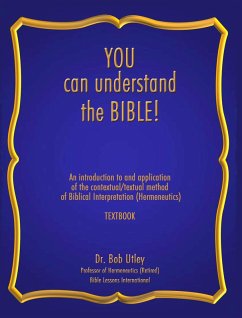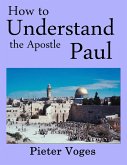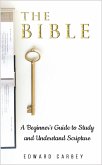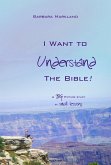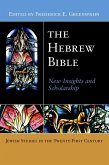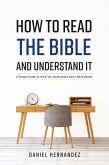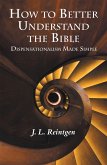We are all searching for meaning.
Simple cultural and religious clichés do not bring meaning to the experiences we read about or encounter. We experience confusion, a searching, a longing, and often a feeling of hopelessness in the face of the insensitive, hard world in which we live.
Many claimed to have answers to these ultimate questions, but after research and reflection we find that their answers were based upon (1) personal philosophies, (2) ancient myths, (3) personal experiences, or (4) psychological projections.
We all need some degree of verification, some evidence, some rationality on which to base our world-view, our integrating center, our reason to live.
This evidence can be found in the study of the Bible.
Its trustworthiness can be found in
(1) the historical reliability of the Bible confirmed by archaeology,
(2) the accuracy of the prophecies of the Old Testament,
(3) the unity of the Bible message over the sixteen hundred years of its production, and
(4) the personal testimonies of people whose lives had been permanently changed by contact with the Bible.
Christianity, as a unified system of faith and belief, deals with complex questions of human life.
And yet questions remain.
How do we verify or reject the varied and conflicting interpretations of the many difficult passages in the Bible by those who were claiming its authority and trustworthiness?
The Bible must be interpreted in light of the intent of the original divine author (the Spirit) through a human writer in a specific historical setting.
The Bible was written for the common person!
God speaks to us clearly within a historical and cultural context. God does not hide truthHe wants us to understand! Therefore, the Bible must be interpreted in light of its day, not ours. The Bible should not mean to us what it never meant to those who first read or heard it. It is understandable by the average human mind and uses normal human communication forms and techniques.
The Bible has a unified message and purpose. It does not contradict itself, though it does contain difficult and paradoxical passages. Thus, the best interpreter of the Bible is the Bible itself.
Every Bible passage (excluding prophesies) has one and only one meaning based on the intent of the original, inspired author. Although we can never be absolutely certain we know the original author's intent, many indicators point in its direction:
1. the genre (literary type) chosen to express the message
2. the historical setting and/or specific occasion that elicited the writing
3. the literary context of the entire book as well as each literary unit
4. the textual design (outline) of the literary units as they relate to the whole message
5. the specific grammatical features employed to communicate the message
6. the words chosen to present the message
7. parallel (similar) passages in the Bible
We must provide the reasons and logic behind our interpretations. The Bible is our only source for faith and practice.
When we have taken the time to understand the text in its original setting; we must apply it to our life and our culture.
Biblical authority is "understanding what the original biblical author was saying to his day and applying that truth to our day."
In applying the Bible, one and only one meaning is valid for a particular Bible text. That meaning is related to the intent of the original author as he addressed a crisis or need in his day. Many possible applications may be derived from this one ...
Dieser Download kann aus rechtlichen Gründen nur mit Rechnungsadresse in A, B, CY, CZ, D, DK, EW, E, FIN, F, GR, H, IRL, I, LT, L, LR, M, NL, PL, P, R, S, SLO, SK ausgeliefert werden.

